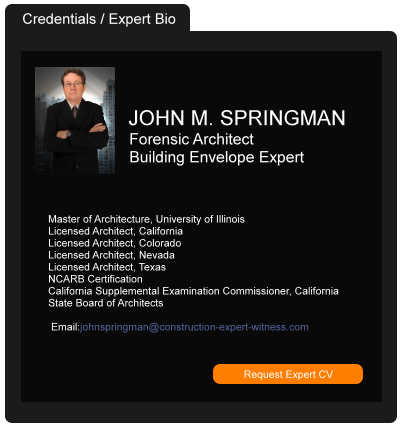Co-Housing Startups Fly in the Face of Old-School NYC Housing Law
December 18, 2022 —
Amelia Pollard & Diego Lasarte - BloombergA room in an eight-bedroom Bed-Stuy brownstone with “charming views.” A five-bedroom “modern Manhattan” home. In a housing market as hot as New York City’s, these units advertised on co-housing companies’ websites sound promising. According to the city’s housing regulations, however, neither is legal.
That hasn’t stopped companies from offering the rooms, as renters clamor for affordable living space. With the average studio apartment in Manhattan going for nearly $3,100 a month, newcomers to the city often find living with multiple roommates to be their best affordable-housing option. It’s a trend that startups have jumped on, and one some experts endorse as a way to quickly scale up affordable housing — even though municipal housing laws aren’t on board yet.
The reality is that in many cities, housing laws that limit the number of unrelated individuals in a dwelling are still in place. New York, for instance, doesn’t allow more than three unrelated people to live in the same unit. To be sure, New Yorkers often break that law, as expensive housing forces people to find roommates through friends or on sites like Craigslist. But multimillion-dollar companies breaking that law is new.
Reprinted courtesy of
Amelia Pollard, Bloomberg and
Diego Lasarte, Bloomberg Read the court decisionRead the full story...Reprinted courtesy of
Estoppel Certificate? Estop and Check Your Lease
May 06, 2019 —
Lauren Podgorski - Snell & Wilmer Real Estate Litigation BlogIf you are leasing space in a building, there may come a time when you receive a request from your landlord to fill out and sign an estoppel certificate. Estoppel certificates are usually sent to tenants in connection with the sale or refinance of a building, and a third party may rely on the accuracy of the statements and information contained in the estoppel certificate in connection with that transaction. Estoppel certificates can range from a very simple, one-page document, to several pages.
I’ve received an estoppel certificate in the mail. What do I do now?
Consider the following:
Check your lease. Your lease may require you to deliver the signed estoppel certificate and may even give you a timeframe within which you are required to return it. A form of estoppel certificate may also be included in your lease as an exhibit. If you’ve previously agreed to a form of estoppel certificate in your lease, check to ensure the one you have received matches the form you previously agreed to and if it doesn’t make sure to review it carefully to make sure it is acceptable.
Review the estoppel certificate and confirm that all of the information is accurate. Be on the lookout for any terms or provisions that you did not agree to in your lease. If it seems like the landlord is trying to modify your lease, you likely do not need to consent to the change in this document. Cross off (or modify or delete, if you have an electronic copy) any information that is inaccurate. Fill in all blanks (if the blank is not applicable, write “N/A”), and if any exhibits are referenced in the body of the document, make sure they are actually attached.
Read the court decisionRead the full story...Reprinted courtesy of
Lauren Podgorski, Snell & WilmerMs. Podgorski may be contacted at
lpodgorski@swlaw.com
Personal Guarantor Cannot Escape a Personal Guarantee By…
June 02, 2016 —
David Adelstein – Florida Construction Legal UpdatesIn a prior article, I discussed the point that a
personal guarantor cannot escape a contractual requirement of a
personal guarantee merely by executing the guarantee as a corporate officer.
The recent decision Frieri v. Capital Investment Services, Inc., 41 Fla. L. Weekly D1189a (Fla. 3d DCA 2016) illustrates this point. In this case, a company hired an individual to help grow that company’s business. The contract required the individual to invest $6 Million into a trust in consideration of the company’s president transferring substantial shares of the company into the trust. The objective was that the trust would own the controlling shares of the company. The money was transferred. However, the shares were never placed in the trust and the trust never received controlling interest in the company.
Read the court decisionRead the full story...Reprinted courtesy of
David M. Adelstein, Kirwin NorrisMr. Adelstein may be contacted at
dma@kirwinnorris.com
Bert L. Howe & Associates Brings Professional Development Series to Their San Antonio Office
March 28, 2014 —
Beverley BevenFlorez-CDJ STAFFMirroring similar seminars currently provided in other regional markets, BHA’s Professional Development Series provides seminar attendees with a heightened level of knowledge and understanding on a wide range of subjects covering construction and construction defect litigation, tailored to the unique needs of local counsel and insureds.
The first seminar in this series will be presented on May 9th, and is entitled THE RESIDENTIAL CONSTRUCTION PROCESS & CONSTRUCTION DEFECT LITIGATION.
This course has been approved for Minimum Continuing Legal Education credit by the State Bar of Texas Committee on MCLE in the amount of 1.0 credit hours, of which 0.0 credit hours will apply to legal ethics/professional responsibility credit.
The seminar will be presented by Don MacGregor, general contractor and project manager, at BHA’s San Antonio office during the noontime hour, and luncheon will be provided. As with all BHA Professional Development activities, there is no cost for participation.
Water intrusion through doors, windows and roofing systems, as well as soil and foundation-related movement, and the resultant damage associated therewith, are the triggering effects for the vast majority of homeowner complaints today and serve as the basis for most residential construction defect litigation.
The graphic and animation-supported workshop/lecture activity will focus on the residential construction process from site preparation through occupancy, an examination of associated damages most often encountered when investigating construction defect claims, and the inter-relationships between the developer, general contractor, sub trades and design professionals.
Typical plaintiff homeowner/HOA expert allegations will be examined in connection with those building components most frequently associated with construction defect and claims litigation.
The workshop will examine:
* Typical construction materials, and terminology associated with residential construction
* The installation process and sequencing of major construction elements, including interrelationship with other building assemblies
* The parties (subcontractors) typically associated with major construction assemblies and components
* The various ASTM standard testing protocols utilized to field test buildings
* An analysis of exposure/allocation to responsible parties
Attendance at THE RESIDENTIAL CONSTRUCTION PROCESS & CONSTRUCTION DEFECT LITIGATION seminar will provide the attendee with:
* A greater understanding of the terms and conditions encountered when dealing with common construction defect issues
* A greater understanding of contractual scopes of work encountered when reviewing construction contract documents
* The ability to identify, both quickly and accurately, potentially responsible parties
* An understanding of damages most often associated with construction defects, as well as a greater ability to identify conditions triggering coverage
* Assistance in the satisfaction of important continuing education requirements.
Course #: 901290467 / Sponsor #: 14152
To register for the event, please email Don MacGregor at dmac@berthowe.com.
Read the court decisionRead the full story...Reprinted courtesy of
Need and Prejudice: An Eleventh-Hour Trial Continuance Where A Key Witness Is Unexpectedly Unavailable
July 10, 2018 —
Angela S. Haskins & Allegra Perez - Haight Brown & Bonesteel LLPIn Padda v. Superior Court (GI Excellence), No. E070522, the Court of Appeal, Fourth Appellate District, Division Two, recently held that a trial court abused its discretion in denying Defendants/Cross-Complainants’ request for a trial continuance where their key expert witness suddenly became ill twelve days before trial and before his deposition had been taken.
Reprinted courtesy of
Angela S. Haskins, Haight Brown & Bonesteel LLP and
Allegra Perez, Haight Brown & Bonesteel LLP
Ms. Haskins may be contacted at ahaskins@hbblaw.com
Ms. Perez may be contacted at aperez@hbblaw.com
Read the court decisionRead the full story...Reprinted courtesy of
Cold Stress Safety and Protection
February 27, 2023 —
The Hartford Staff - The Hartford InsightsThe best time to think about cold stress safety isn’t when it’s about to snow – it’s actually when it’s still warm out.
“Construction firms and other businesses may start to think about protecting workers against the cold when frigid temperatures and the winter are right around the corner. But we’ve found that oftentimes, that may be too late to start thinking about cold stress prevention,” said Chris O’Hala, director of construction Risk Engineering at The Hartford. “Thinking about cold protection months ahead can prevent serious injuries, illnesses or even death.”
O’Hala added that possible solutions for cold-related risks, like planning for temporary heat or building temporary enclosures, “require very specific planning, equipment and materials.”
Read the court decisionRead the full story...Reprinted courtesy of
The Hartford Staff, The Hartford Insights
Red Tape Is Holding Up a Greener Future
March 13, 2023 —
The Editors - BloombergSeven months on, Democrats are still celebrating the Inflation Reduction Act, even though a crucial determinant of its success — permitting reform for energy projects — remains undone. Recent data shows just how imperative it is for them to stop dragging their feet.
What’s now called the IRA had little to do with inflation. It was a climate bill, and a big one: It provided $370 billion to improve energy efficiency, reduce emissions and smooth the path to a clean-power economy. It came on top of a 70% surge in private investment since 2017.
But the biggest impediment to the US energy transition isn’t financing: It’s building.
A decade ago, between 25% and 30% of proposed wind and solar projects moved from the drawing boards to completion. But as new projects and new funding have soared, utilities have been unable to keep up, leading to an immense backlog. A recent report by BloombergNEF found that over just six years, global clean-energy investment has gone from half the level of fossil-fuel investment to near parity, an extraordinary leap that reflects the market’s appetite for clean power. Yet America’s dysfunctional regulation is preventing many needed projects from even breaking ground.
Read the court decisionRead the full story...Reprinted courtesy of
The Editors, Bloomberg
Does Article 2 of the Uniform Commercial Code Impact Your Construction Project?
November 07, 2022 —
Chris Cazenave - ConsensusDocsThe Uniform Commercial Code (UCC) is a set of statutes governing commercial transactions. Every state has adopted the UCC or some version of it. Understanding when and how the UCC applies to construction contracts is important because it can affect the agreement’s terms.
Article 2 of the UCC applies to the sales of goods, which the UCC defines very broadly to mean “all things (including specialty manufactured goods) which are movable . . . other than money in which the price is to be paid . . . .” UCC § 2-105. For the construction industry, UCC Article 2 governs most, if not all, purchases of materials and equipment installed or incorporated into the project. As a result, contractors and subcontractors should be familiar with the circumstances under which Article 2 may apply and how it may affect the project.
This article provides a brief overview of when Article 2 may affect your construction project and why it matters. The article also generally covers the UCC’s potential effects on the applicable statute of limitations, implied warranties, and when the obligation to make the payment arises.
Read the court decisionRead the full story...Reprinted courtesy of
Chris Cazenave, Jones Walker LLP (ConsensusDocs)Mr. Cazenave may be contacted at
ccazenave@joneswalker.com


































































